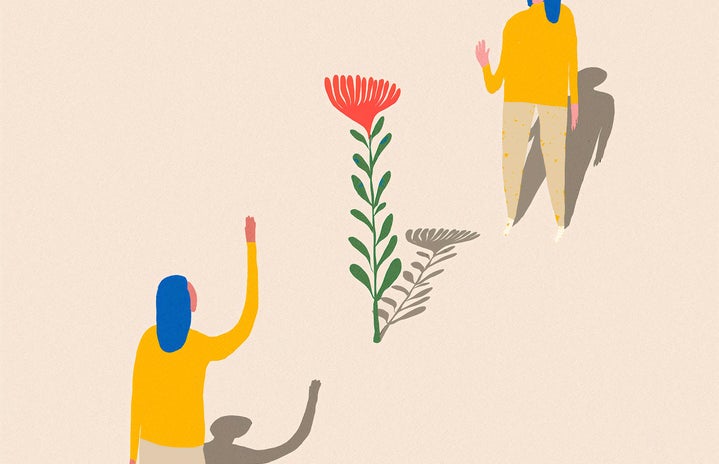As the effects of a Covid-striken society seem to evolve from implications and protocols to just being the hopeless norm, the idea of a Covid-immune, mask free world provokes us to consider just how much our lives have actually changed because of the pandemic.
It is fair to say that the novel Coronavirus has impacted and influenced lives, movements, markets, and beyond, but to what extent? If our idea of safety is staying away from others and covering our faces, how can people feel happy while trying to diminish the spreading of a virus and preserve the health of ourselves and others?
Yes — masks keep us safe. Sane? Maybe. Social? Somewhat. Intimate? Probably not. When it comes to meeting new people, masks have changed the game for better or worse. For MSU sophomore Hayley Filipatos, masking up has helped her with confidence, stating that “people don’t have to see my whole face, they can only see the features that I personally like on myself.” However the mask has acted as a double edged sword for Filipatos, limiting her understanding of other mask wearers. “As us being human beings, it makes it really hard, because we rely on facial expressions to be able to continue a conversation and get a better read on if situations make people uncomfortable or not.”
Wearing a mask and texting share a similarity. Expressions are hard to perceive, as Filipatos mentioned. If conversations are harder to have in person, then we resort to the next convenient way to socialize: our phones. Filipatos admits to resorting to using online social apps as a means to make friends amidst the pandemic, sharing “being online, people may not be able to judge you by what you look like, and that way you can form more genuine connections before that first impression or first judgement from people.”
In a world where our eyes are glazing over a screen longer than they are anything else, it is no surprise that humans will resort to being social creatures in any way possible, including using technology as their outlet to meet other people. While we frequently consider how masks limit our view of other people, can’t we assume that technology also has a similar effect on limitations? In that case, just how much are we missing out on?

